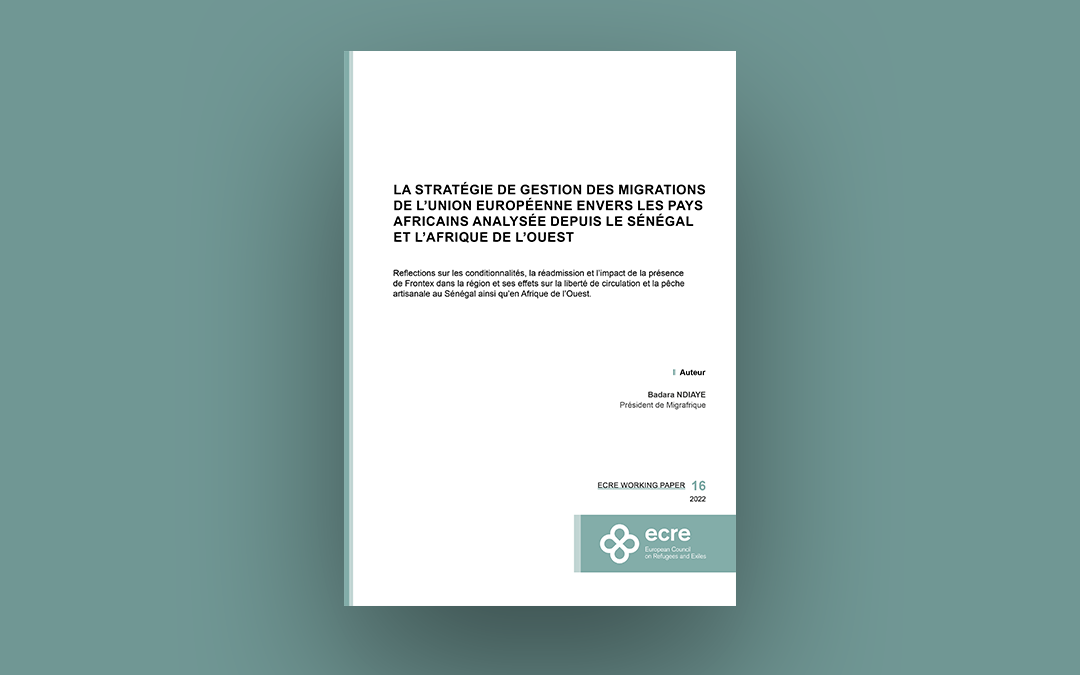ECRE today published a working paper (in French) authored by Badara Ndiaye, President of Migrafrique. The working paper includes reflections on conditionality, readmission and the impact of the presence of Frontex in the region. It also includes analysis of the impact of EU policy on freedom of movement and artisanal fishing in West Africa.
The working paper finds that while the majority of Senegalese migration is to other African countries, migration to Europe is characterized by significant restrictions in terms of obtaining visas and reinforced border controls, partly as a result of agreements with the EU. The lack of opportunities for regular and legal mobility lead many West African migrants to resort to more risky routes. The case of visas is illustrative for this restrictive approach. The working paper details the various challenges in relation to obtaining visas for travel, business or study are illustrated and the economic costs related to them.
It includes different perspectives from civil society representatives in West Africa on the EU’s approach to migration which highlights the negative repercussions the EU’s restrictive approach on migration has on bilateral relations with individual West African countries and the region as a whole.
Finally, the potential role of Frontex in Senegal and implications for the region as well as a critique of the argument that Frontex operational deployment will support the fight against overfishing or support artisanal fishing is provided.
For further information:
- ECRE, Frontex: MEPs Urge Release of EU Anti-Fraud Investigation, Frontex to Increase Manpower at Ukrainian Border, Green Light for Talks on Senegal Deployment, March 2022
- ECRE, ECRE Working Paper: Civil Society Input to EU-Africa Cooperation on Migration: The Case of Senegal, February 2020
This article appeared in the ECRE Weekly Bulletin. You can subscribe to the Weekly Bulletin here.

